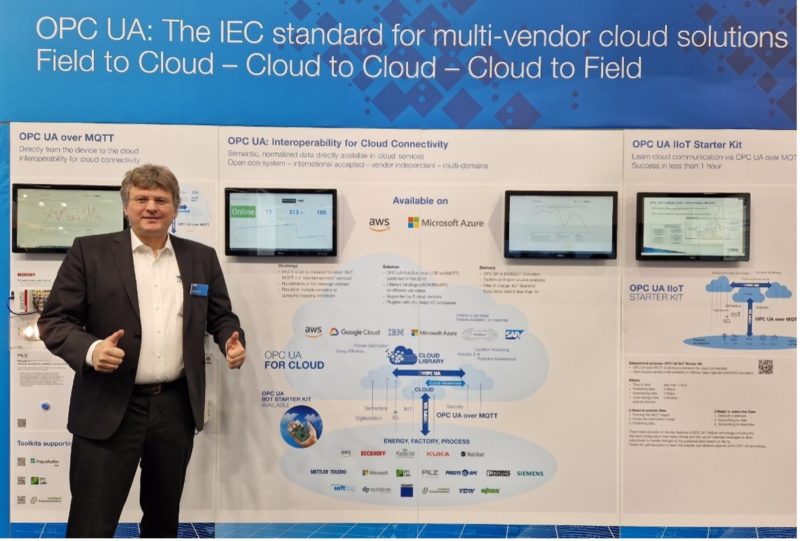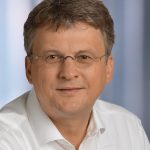Confusion in Standardization
Are you also confused by all these new technology terms? We can’t keep up with them in our own everyday lives and we have a hard time assessing which are relevant. When I’m traveling, I get asked questions like:
- How is the Asset Administration Shell related to OPC UA?
- Is the Asset Administration Shell’s offline data storage AutomationML?
- Is a submodel of the Asset Administration Shell the same as an OPC UA Companion Spec?
- If yes: why double standards? If not – how to differentiate?
- The Asset Administration Shell scales over the lifecycle and collects data, right?
- Now why is it a digital twin – i.e., a copy of a physical asset, that’s different, right?
- Does the DataSpace stand above the twin – or beside it and isn’t it much better?
- Is it still worth implementing in the Asset Administration Shell, or isn’t lifetime data safer in the DataSpace or directly in the metaverse?
- Oh, there are multiple-verses? How do they communicate with each other… and why, actually?
Certainly, very large enterprises have the resources to offer their experts to all the groups and initiatives to get a picture and, ultimately, check for relevance. But smaller and mid-sized companies are left behind, having very different concerns with supply chains that are still strained. “Wait until the picture becomes clearer” becomes the interim motto. The overabundance of terms and solutions leads to an implementation blockade.
But brighter Days are Approaching …
The associations AutomationML, IDTA, OPC Foundation, and VDMA have accepted the challenge and are currently working intensively together on a joint position paper. I expressly thank the small core group of participants from the four associations for the political will, the excellent cooperation, and the mutual explanations. We listen to each other, help and complement each other, in order to present an easily understandable joint position paper, which has the current working title of, “Big Picture Interoperability” in 2023.
Highlights SPS Trade Show
There were several highlights to announce and celebrate at the SPS trade show:
Field Level Communications Initiative: Release of the Specification
Congratulations to Peter Lutz as the representative, but also to the 320 active members from more than 65 companies, on the public release of the UAFX specifications. As a first step, this closes a gap so that assets from different eco-systems can exchange information horizontally with each other in a standardized way.
More information Here…
OPC UA Cloud Initiative: 18 Publishers Plus Adoption by AWS
Compared to 2021 with just two companies, 2022 boasts a total of 18(!) companies who demonstrated “OPC UA over MQTT” messages sent directly from their asset.
After Microsoft Azure lead the way in 2021, another dashboard from the cloud giant AWS, was shown at the OPC booth in 2022. Both dashboards could easily receive and display live data from the 18 participating companies via “OPC UA over MQTT” without extra software adapters. OPC UA over MQTT as “the USB connector for telemetry data to the cloud”.
Adoption will continue to grow, and it is apparent that all companies have recognized the need for a single MQTT standard: OPC UA over MQTT as IEC Spec with two different encodings – JSON and Binary – to cover all industry requirements. The working group “MQTT” bundles and coordinates these requests from the industry and derives the necessary specifications.
.NET User Group
The “.NET User Group” has been initiated by three companies represented on the OPC Foundation Board of Directors: ABB, Microsoft, and SAP. This group aims to maintain and extend the existing open-source “UA-.NET standard” project, available on GitHub. More details Here …
General Assembly Meeting 2022 – Recording
The purpose of the OPC Foundation General Assembly is to get an overview of the election of the Board of Directors, the finances, the activities, and the OPC UA technology and certification programs. My congratulations go to all re-elected colleagues on the board – I am looking forward to a high turnout of members and to another intensive time together in the board.
The presentation and recording are available Here…
Information Models and Harmonization
Another 12(!) information models were released this year, which resulted from cooperations with our partners. In total, the OPC Foundation hosts 85 information models and the number is constantly growing. The new landing page allows an easy search with special filters, please find more information Here…
I, again, understand that beside the domain specific information models, the harmonization of the models, among themselves, is particularly important. Special thanks and appreciation to the harmonization groups under the leadership of Dr. Wolfgang Mahnke.
Events 2023
I could highlight lot of activities in 2022 – it makes me “hungry for more” and so I invite you to have a look at the 2023 international events posted on the OPCF website:
- Call for sponsors https://opcfoundation.org/advertising/
- List of activities. https://opcfoundation.org/events/
Success Story
I assume you enjoyed the Miele success story in our last issue, reporting not only about how they deployed all new production lines with OPC UA but also switched to an OPC UA network infrastructure within existing factory environments.
The latest success story highlights Rosendahl-Nextron, developing and manufacturing equipment for the global cable, fiber optics, and battery industry. The company is part of the KNILL GROUP, an Austrian group focused on industrial manufacturing. With automation solutions from Siemens and the OPC UA communication standard, Rosendahl-Nextrom flexibly connects all production steps. Orders for cable or battery machine production can be implemented more efficiently and complex operating data can be collected simultaneously.
Read more Here …
Outlook 2023
Besides the many activities planned in 2023, the OPC Foundation has also set a new focus: we want to offer easy access to the OPC UA technology for new users. This means learning more about the framework’s technology, security, modeling, companion specifications and more, via purely “digital means = remote = virtual”. I am convinced that OPC UA will grow much more into other markets like the energy industry, and will also grow further into the IT world, to provide solutions for secure interoperability requirements. Therefore education in these sectors is important for adoption.
Normal Life
In December 2021, I asked myself the question, “Are we back to normal life?” at this same spot within the newsletter. I had used this opportunity to describe the lockdowns and travel restrictions due to the Covid virus, where we all hoped from one quarter to the next to make this virus manageable and return to “normal life”. “But in 2022 everything will be better!” was the hope that I offered with reference to travel opportunities. And yes, many people are traveling again, industry trade shows and other user group meetings are happening again. I am lucky to again meet so many enthusiastic people in the world. And as much as I appreciate the personal exchange on-site to listen to each other and to achieve mutual understanding and clarifications in conversation – I still became very reflective: While I am coordinating travels in the OPC team for 2023 or working on bringing clarity to the confusion of standards through inspiring meetings with other organizations – other people are, suddenly, living without electricity and running water because their critical-infrastructure is the easiest target in a war to hit and wear down a civilian population.
Has the world become more normal in 2022? Probably not.
And nevertheless, or just because of that:
Merry Christmas and a Happy New Year.
Here’s my hope for a more peaceful 2023!

 Stefan Hoppe
Stefan Hoppe